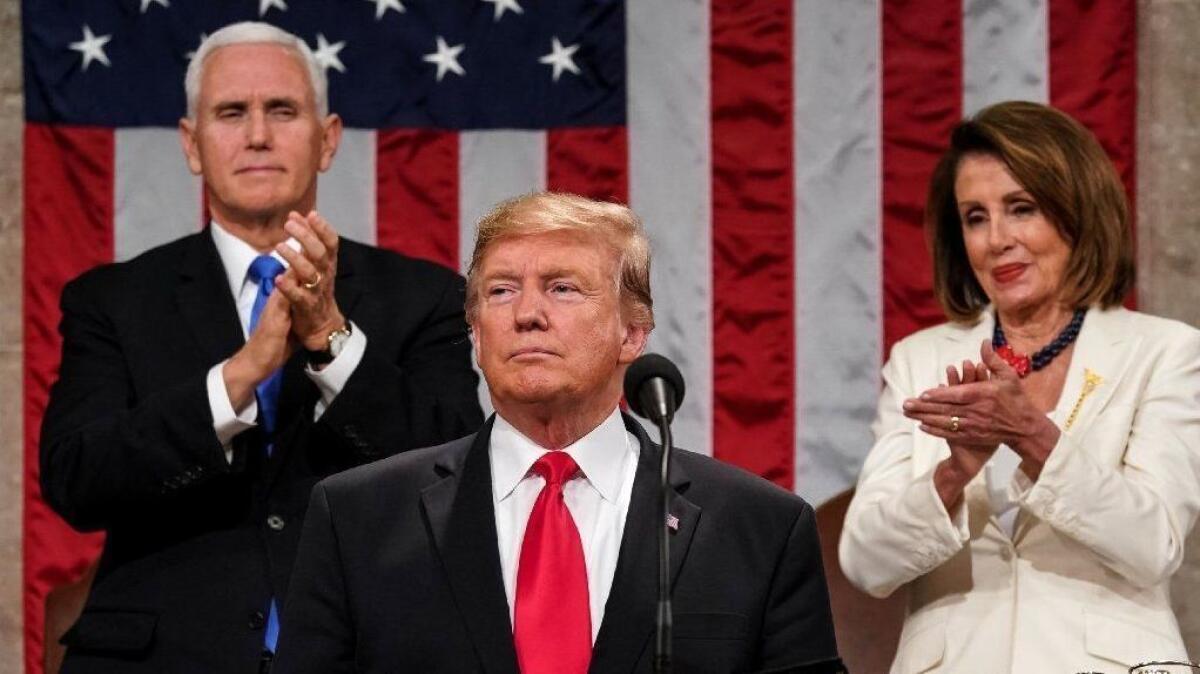Readers React: Is Trump plunging the world into a new nuclear arms race?

- Share via
To the editor: There was something in President Trump’s State of the Union address Tuesday night that shook me, but your coverage of the address seems to have largely missed it.
When I was a school kid, we were occasionally instructed to hide under our desk as a safety measure in case of a nuclear attack. The United States was in a nuclear arms race that my generation felt was out of control. It took until the Reagan administration before we signed a treaty with the Soviet Union on intermediate-range nuclear missiles.
On Tuesday, Trump seemed to forecast a new nuclear arms race. He said: “I announced that the United States is officially withdrawing from the Intermediate-Range Nuclear Forces Treaty, or INF Treaty. Perhaps we can negotiate a different agreement, adding China and others, or perhaps we can’t — in which case, we will outspend and out-innovate all others by far.”
Are we going to “outspend and out-innovate all others by far” once we finalize our withdrawal from the treaty? If so, isn’t that a new nuclear arms race?
Joe Geever, Long Beach
..
To the editor: CBS coverage following the State of the Union address noted approval ratings of 76% for the speech. None of the five articles in Wednesday’s print edition of the Los Angeles Times referenced this important piece of news about the address.
But, of course, each article in the L.A. Times put a negative spin on the speech.
Dennis McLaughlin, Rancho Palos Verdes
..
To the editor: Trump suggested that the success of his economic miracle is being threatened by “partisan investigations.” His statement, as is often the case with him, is manifestly untrue.
Trump, a Republican, appointed Jeff Sessions, a Republican, as his attorney general; after Sessions’ recusal due to his involvement in the 2016 campaign, his duties fell to Deputy Atty. Gen. Rod Rosenstein, also a Republican, who then appointed Robert S. Mueller III as special counsel.
Mueller, a lifelong Republican, had previously served as FBI director, appointed in 2001 by President George W. Bush, also a Republican. Where are the partisan Democrats?
Noel Johnson, Glendale
Follow the Opinion section on Twitter @latimesopinion and Facebook
More to Read
A cure for the common opinion
Get thought-provoking perspectives with our weekly newsletter.
You may occasionally receive promotional content from the Los Angeles Times.









